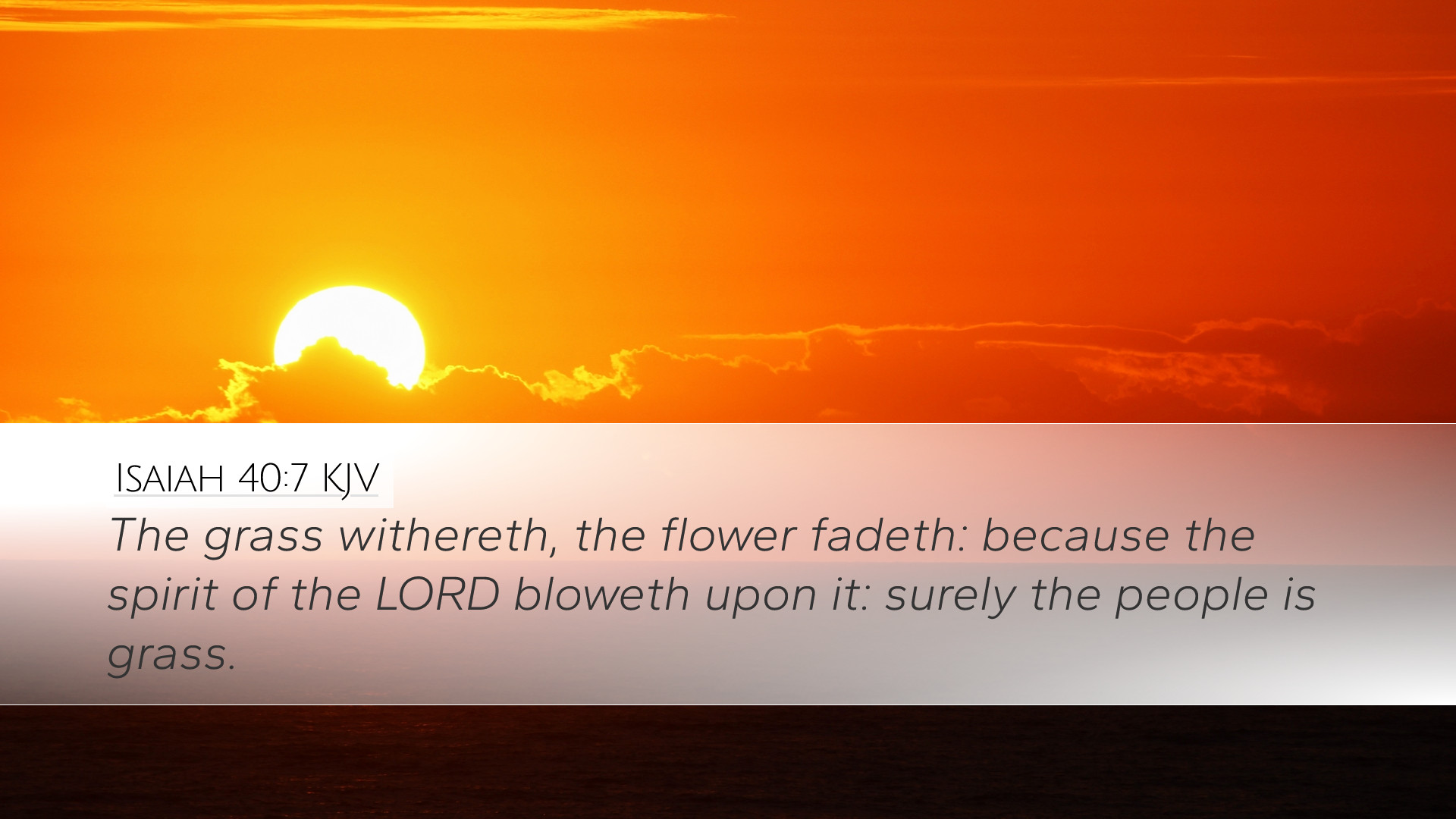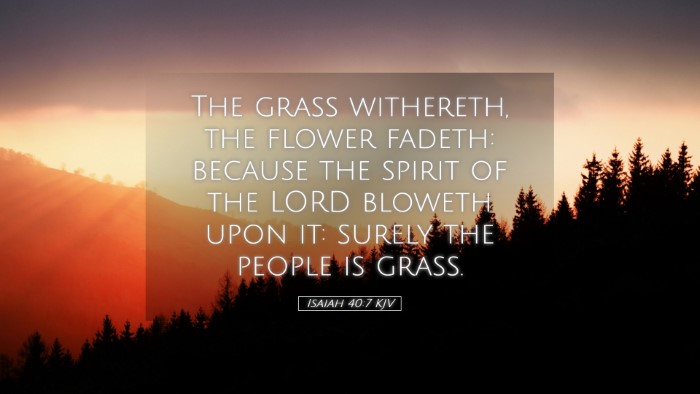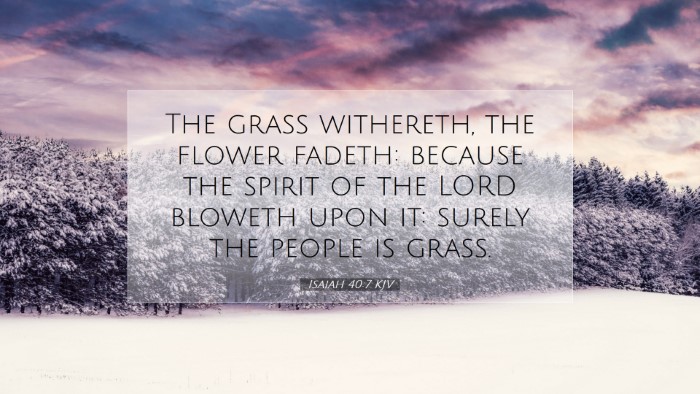Commentary on Isaiah 40:7
Verse: Isaiah 40:7 - "The grass withers, the flower fades; but the word of our God shall stand forever."
Introduction
This verse from Isaiah 40:7 is deeply poignant and serves as a reminder of the transient nature of human life and the enduring nature of God's word. In this commentary, we will draw insights from key public domain commentaries, including those of Matthew Henry, Albert Barnes, and Adam Clarke, to explore the rich theological implications of this verse.
Contextual Background
To understand Isaiah 40:7, we must first consider the context of the chapter. The fortieth chapter of Isaiah marks a pivotal transition from messages of judgment to messages of comfort and hope. It is directed towards the exiled Israelites, emphasizing God's deliverance and the ultimate restoration of His people.
Matthew Henry's Commentary
Matthew Henry emphasizes the contrast between the temporary nature of the created world and the permanence of God's word. He explains, "The grass withers, and the flower fades; both of these are emblems of the mortality and frailty of man." The imagery of grass and flowers serves not only to illustrate the ephemeral beauty of nature but also underscores the transient joys of life that must inevitably succumb to time.
Albert Barnes' Perspective
Albert Barnes provides a thoughtful analysis of the symbolic significance of grass and flowers. He suggests that this metaphor reflects the brevity of human life and the futility of worldly pursuits. Barnes states, "All that men engage in, whether of pleasure, wealth, or power, is as fleeting as the grass; they flourish for a season and are then gone." This call to recognize the inherent temporality of earthly endeavors encourages believers to place their hopes and foundations in the eternal promises of God.
Adam Clarke’s Insights
Adam Clarke delves into the significance of God's word as an everlasting foundation. He notes that while the natural world is subject to decay, "the word of our God stands forever." Clarke elaborates on the reliability of God’s promises and teachings, stating that His word is immutable and sustains believers through trials and tribulations. This assurance should motivate believers to cling to Scripture, for it is the source of truth that remains when everything else fails.
Theological Implications
The theological implications of Isaiah 40:7 are profound and manifold. It invites believers to consider the sovereignty of God in contrast to the fragility of creation.
Transience vs. Permanence
The verse juxtaposes the transient nature of life with the permanence of God's word, reflecting a significant theme in biblical theology. The grass and flowers represent the fleeting beauty and glory of the temporal world, while the enduring word of God represents ultimate truth and divine wisdom.
Hope and Reassurance
Isaiah 40:7 offers hope and reassurance to believers. In times of despair, when life feels chaotic and uncertain, the promise that God's word will stand forever provides a solid foundation on which believers can anchor their faith. As Henry notes, "In the midst of changes and uncertainties in the world, the certainty of God's promises brings peace to the soul."
Practical Applications
For pastors, theologians, and students of the word, Isaiah 40:7 encourages a few key practices:
- Prioritize Scripture: Believers are called to immerse themselves in the word of God, recognizing its eternal value in a world that often feels transient.
- Encourage Others: Pastors can remind congregations of the assurance that God's word provides amid life’s uncertainties.
- Reflect on Mortality: This verse invites contemplation on the fragility of life and encourages a heart attitude of humility and dependence on God.
Conclusion
Isaiah 40:7 serves as a profound reminder of the contrasting natures of the temporary and the eternal. As explored through the lenses of Henry, Barnes, and Clarke, this scripture invites believers to reflect on the fleeting nature of life while clinging tightly to the enduring nature of God's promises. In a world where chaos and uncertainty often reign, may we find solace in the steadfast assurance that comes from the word of our God, which indeed shall stand forever.


